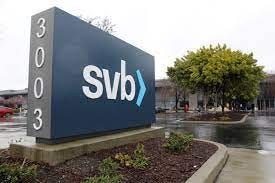Should you trust your bank?
Estimated Reading Time 3 minute 3 seconds
Normally on Monday I would go through an idea with you, but over the weekend there was some big news that needs to be addressed.
We interrupt your regular programming to talk about banks failing.
Right at the end of last week there was some huge news that is directly going to impact the economy in the United States.
On Friday March 10th, banking regulators closed Silicon Valley Bank(SVB).
I’m not going to go too deep into the details of how or why this happened, for that I recommend reading this article for more context. Read on for the banks failing for dummies version.
Essentially people who held money in the bank lost confidence in the bank’s ability to provide them with their money because the bank made some bad investments.
This triggered a bank run where everyone tried to get their money out of the bank all at once. The bank wasn’t able to fulfill all of these requests, so federal regulators had to step in and shut the bank down.
Now, almost all banks and credit unions are FDIC insured up to $250,000. To normal people that seems like plenty of money. Who has more than $250,000 just chilling in their bank account? Well, the answer is plenty of companies need way more than that just to survive day to day.
If you are a company that has 100 employees, and you do payroll two times a month, you’ll blow through $250,000 in a week or two.
100 employees * $4,000 average bi-weekly income = $400,000 in payroll costs alone
That’s assuming an average salary of $100,000 a year, which is probably low for the tech industry.
The federal government stepped in on Sunday as another bank in New York had to be shut down. The announcement came out that all bank funds from Silicon Valley Bank will be backed by the federal government.
For more on the process of how it works when a bank fails, this tweet by Utah governor Spencer Cox is very helpful.
What does this mean for small businesses?
Unless you are in California or New York, it is unlikely you held money in either SVB or Signature bank. But this banking crisis can still impact your business.
The health of the economy is all about the velocity of money. If money is changing hands quickly and going from business to business that makes for a healthy economy.
If money stays in place and doesn’t transact then the economy is in trouble.
If these businesses and depositors in SVB and Signature Bank are unable to access their money for long periods of time, then all those funds are going to slow down.
Here’s a real world example:
The Account Executive that works at a tech startup in California doesn’t get paid for two months because his company can’t access the funds.
The spring backyard remodel they had planned will have to wait. Eventually they’ll get paid in full but for now that money could get stalled.
Now the landscaper lost a booking so he has to scramble to keep his crews busy.
It’s going to create a domino effect that might cause businesses to be in tough shape.
Not to mention the impact on interest rates this will have.
March 22nd will be a day to watch as the federal government will announce any changes to interest rates.
Should you let this news keep you from starting or buying a business?
Absolutely not.
A wise man once told me “Good economic times are for increasing your margin. Bad economic times are for increasing your market share.”
Right now we are facing bad economic times. Don’t let that take away your action bias.
“Have a bias toward action—let’s see something happen now. You can break that big plan into small steps and take the first step right away.”—Indira Gandhi




